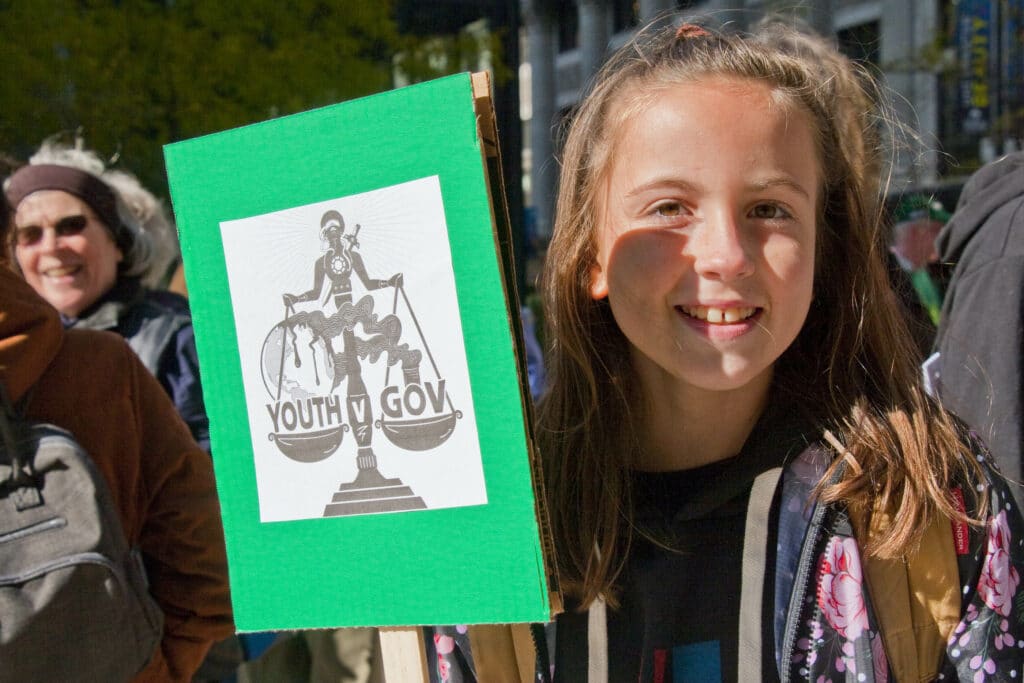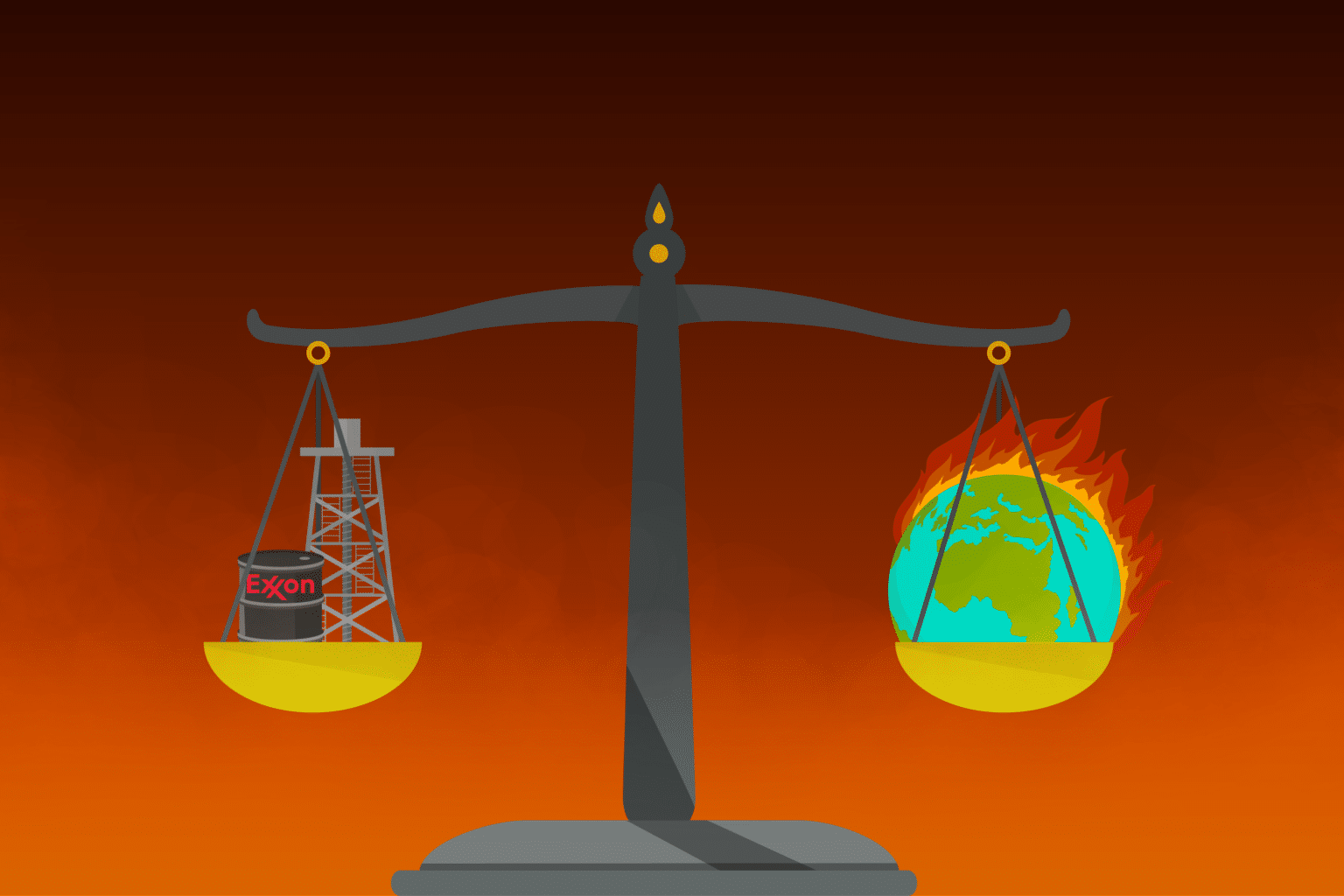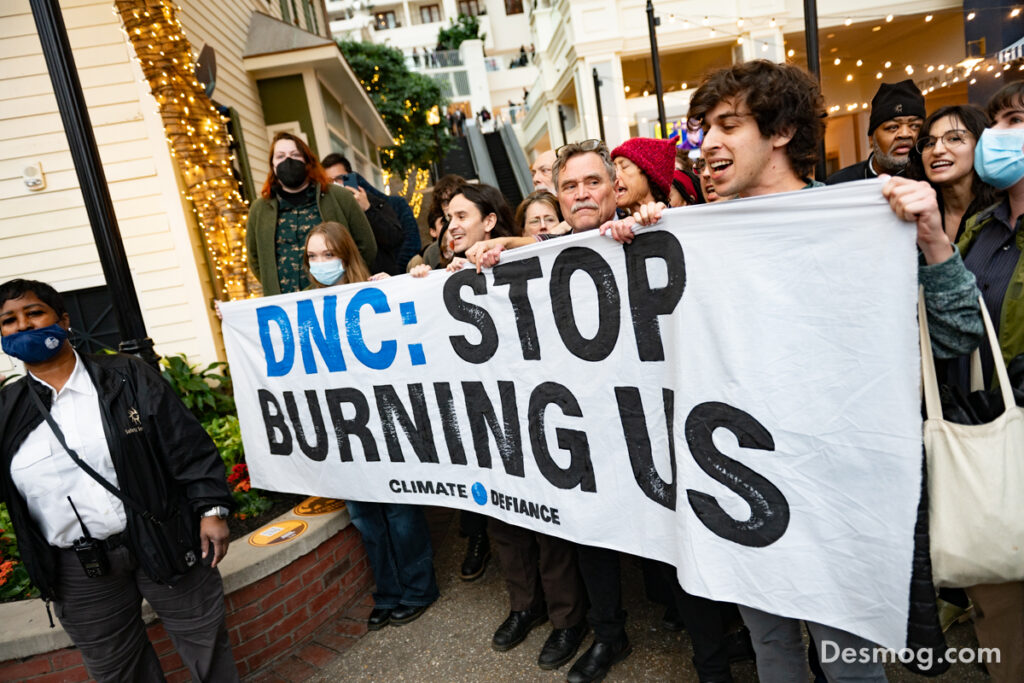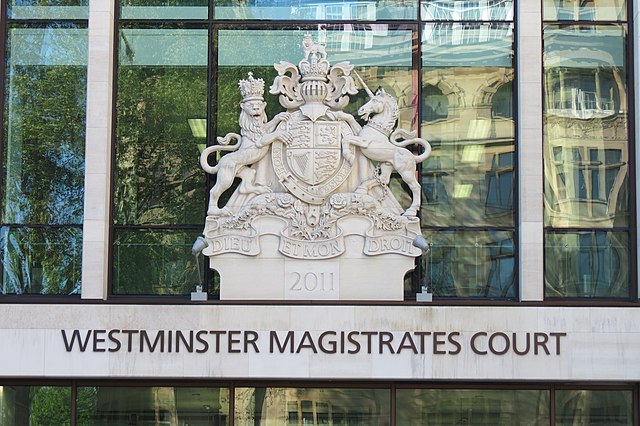In France, three non-governmental organizations sued the oil company Total over alleged “inadequate” environmental and human rights assessments of its oil project in Uganda and Tanzania. In Australia, a student filed a consumer complaint with Ad Standards against the financial services organization HSBC for claiming to support the protection of the Great Barrier Reef despite its links to fossil fuel operations. In South Africa, three civil society organizations launched a case alleging that the government’s plans to obtain new coal power threaten various constitutional rights.
These are just a handful of the hundreds of cases of climate litigation that have arisen worldwide over the past few years. These cases signal a move away from the idea that only scientific experts can speak for climate change, and other professionals, including lawyers, “are pushing the cause forward,” historian and climate accountability researcher Benjamin Franta argues.
Franta co-authored a new report examining the growing trend of climate litigation, published in January by the Climate Social Science Network, an international network of social science scholars headquartered at Brown University’s Institute for Environment and Society. Globally, the number of climate-change-related lawsuits has more than doubled since 2015. Between 1986, when the first climate lawsuit was filed, and 2014, approximately 800 cases were brought. In the past six years alone, more than 1,000 cases have hit courts. This growth of litigation has even inspired a new podcast from investigative journalist Amy Westervelt, host of the popular Drilled podcast; Damages, launching this week, will follow the swarm of climate cases currently working through courts worldwide.
According to Franta, this shift is indicative, in part, of how evident the impacts of climate change have become in recent years. But it also reflects a deeper evolution in the politics of climate change and in the attitude of activists, social scientists, media professionals, and lawyers.
As
— Ben Franta (@BenFranta) February 10, 2022
– climate damages mount
– those damages become measurable
– evidence of malfeasance mounts
– current actions grow increasingly inadequate
– calls for justice & accountability rise
climate litigation will grow worldwide. Here's a quick overview: https://t.co/C1UtsBTpCJ pic.twitter.com/XHsGWOxes5
“I think the last 10 years has seen a growth in a worldview that says the problem is not just fossil fuels as a thing, but the fossil fuel industry as an actor, that this industry has agency and they have made decisions to entrench fossil fuels and, and in doing so, have made the problem much, much worse,” Franta said. “It’s one of the reasons I think these lawsuits have emerged when they have, because of that greater attention on the fossil fuel industry.”
In fact, the fossil fuel industry’s climate denial and obstruction efforts have been so effective that they long obscured these companies’ roles in causing the climate crisis. But that began to change with the #Exxonknew investigation in 2015 and actions like the divestment movement, which was “unique,” Franta said, because “it focused specifically on the fossil fuel industry as the origin of the problem.”
Although the actions of states, governments, financial institutions, and others also drive climate change, many lawsuits thus far have focused on fossil fuel companies’ efforts to spread misleading advertising and messaging. Deceptive advertising can come in different forms, but greenwashing — “unsubstantiated or misleading” claims about an actor’s sustainability performance — is perhaps one of the most common.
From Greenwashing to Climate-Washing
Legal complaints alleging greenwashing aren’t new. According to the CSSN report, the first legal claims of greenwashing regarded companies marketing products as environmentally sustainable while making “misleading environmental claims.”
Instead, today, many legal cases are brought on the grounds that marketing campaigns, for example, are misleading or overstating performance in the context of climate change. The report refers to this gap between PR and real climate commitments as “climate-washing,” and gives the example of fossil fuel companies and major polluters that adopt communication strategies to create the perception that their activities are part of the solution to climate change, rather than the primary cause. A major advertising theme for fossil fuel companies, according to Franta, is portraying their positive impact on developing countries or stating misleading energy transition objectives.
“When a company like Exxon says, ‘We invested $100 million last year in renewables,’ even if that is true, it can be misleading because they omitted the context, which is, ‘But last year we invested $20 billion in fossil fuels,” Franta said.

According to the report, climate-washing can go beyond specific environmental issues. The difference between greenwashing and climate-washing is similar to “viewing climate change as an environmental issue, versus seeing it as a human-rights or a civil rights issue,” Franta said. “Both frames are relevant.”
The report also argues that climate-washing cases are likely to increase, especially if net-zero pledges, which it says have been accused of “giving license to a ‘burn now, pay later’ approach to tackling climate change,” are not backed by tangible action.
According to Franta, climate-washing lawsuits are considered “strategic” litigation because the claimants’ motives go beyond individual concerns and aspire to push forward broader societal changes. A Grantham Research Institute (GRI) report found that strategic litigation is on the rise, suggesting that climate litigation as “an activist strategy” is becoming increasingly popular. The report argues that the goals of claimants in strategic cases include creating public awareness and encouraging public debate, changing the behaviors of government and industry players, and advancing climate policies.
Pushing for Prevention
Climate-washing frames climate litigation in a new way, and it may be useful to keep polluters in check in relation to climate goals. More generally, climate litigation has become a fundamental instrument to enforce political climate commitments, such as the Paris Agreement.
According to the GRI report, litigation that is aligned with climate objectives is “seeing success” especially in the past 12 months, with cases such as Milieudefensie et al. v. Royal Dutch Shell alleging that Shell’s contributions to climate change violate Dutch and human rights law. In May 2021, the Hague District Court ordered Shell to reduce its emissions by 45 percent by 2030, relative to 2019, across all activities. Although Shell is appealing this decision, this case is historically important because it established precedent: For the first time, a court demanded a change in policy from a polluting company, instead of compensation.
During an online seminar organized by the non-profit L’Affaire Climat, Roger Cox, attorney on the Shell case, said lawsuits based on preventive action, like this one, which aim to get an actor to change its course rather than pay damages, have a better chance of success. However, Cox warned that preventive action cannot work in all cases, and that “any pressure is good.”
“I think there will be a mutually reinforcing effect where different countries will pursue different legal strategies and different kinds of remedies, and they’re gonna play off of each other,” Franta said. “In the United States, the idea is that by making somebody pay for the damage, you’re also preventing them from engaging in that behavior in the future, because you’re deterring them from doing that.”
“Of course, damages are sometimes irreversible. Many of the impacts [of climate change] are irreversible,” Franta added, “so they can’t be completely remedied by money, and that’s an argument in favor of an injunction.”
Climate cases are also increasingly targeting financial actors and the private sector. In April 2021, the non-profit ClientEarth filed a lawsuit against the Belgian National Bank for failing to meet climate and human rights requirements when “purchasing bonds from fossil fuel and other greenhouse-gas intensive companies.”
Case update: On Monday we will be in a Brussels court hearing arguing the Belgian National Bank is funding the worsening climate crisis. We will argue the central bank’s purchase of bonds from big polluters is illegal. Background: https://t.co/T3QP9EL7jg
— ClientEarth (@ClientEarth) November 12, 2021
This is not an isolated example. According to the GRI report, today there is more diversity in the arguments being used in climate cases, incorporating themes of greenwashing, due diligence, fiduciary duty, or even human rights law.
In October 2021, for example, the non-governmental organization All Rise filed a request asking the Office of the Prosecutor of the International Criminal Court (ICC) to open an investigation into Brazil’s President Jair Bolsonaro for crimes against humanity resulting from increasing deforestation and other related activities in the Amazon. This is one of many climate-related lawsuits that alleges violations of human rights. According to Franta, this can be an effective approach because international human rights principles and laws can be enforced and incorporated in climate change lawsuits.
Regardless of what argument cases rely on, Franta believes the rise in climate-related litigation is the consequence of different social, cultural, and political processes. But, above all, it stems from an agency vacuum. People, especially young people, know that politicians aren’t acting on climate like they should, Franta explained, and legal instruments are crucial drivers of change.
“Faith in the national and international governance to deal with [climate change] is eroding, a lot of young people especially see it’s not working,” Franta added. “So I think that’s also why they’re looking for alternatives, from social movements to lawsuits to other creative ways to engage professionally to try to address the problem.”
Subscribe to our newsletter
Stay up to date with DeSmog news and alerts







